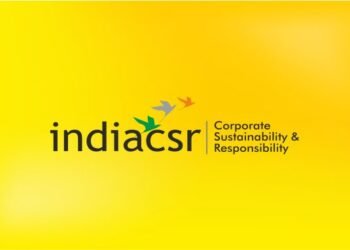CMA Course – A Sneak Peak
The CMA designation is one of the most recognized global certifications for management accountants and financial professionals offered by the Institute of Management Accountants (IMA), the CMA certification focuses on financial management and strategic management skills that are crucial for professionals aiming to showcase their expertise in high-level financial decision-making. We will delve into the various CMA course details essential to
Full Form of CMA
Before delving deeper into the course specifics, it’s important to clarify: CMA full form is Certified Management Accountant. This designation is particularly valued in organizations where effective financial leadership and decision-making are required. The CMA certification helps professionals advance their careers by equipping them with skills in financial planning, analysis, control, and decision support.
Course Structure and Content
The CMA course is designed to impart crucial knowledge and skills necessary for management accounting. It emphasizes two primary areas, covered in two separate examination parts:
Part 1: Financial Planning, Performance, and Analytics
This part focuses on the concepts that underpin financial management and performance management. Key topics include:
External Financial Reporting Decisions: Understanding financial statements and supporting disclosures.
Planning, Budgeting, and Forecasting: Techniques for preparing budgets and financial forecasts, including variance analysis.
Performance Management: Methods for effective performance measurement and evaluation.
Cost Management: Analysing cost behaviour and cost-volume-profit relationship to optimize profitability.
Technology and Analytics: Using technology and analytical skills to improve decision-making in finance.
Part 2: Strategic Financial Management
This section delves into strategic management and risk assessment. Key subjects include:
Financial Statement Analysis: Analysing and interpreting financial statements to assess the value of a business.
Corporate Finance: Understanding concepts in capital budgeting and financing decisions.
Decision Analysis: Techniques for making informed decisions and evaluating long-term investment.
Risk Management: Identifying, analyzing, and managing risks in financial operations.
Investment Decisions: Assessing different forms of investment and their impact on the business.
Duration and Study Format
The CMA program is flexible, allowing candidates to study at their own pace. Candidates can typically expect to spend between 150 to 200 hours of study for each part of the CMA exam, depending on their prior knowledge and experience.
Eligibility Criteria
To enrol in the CMA program, candidates must meet certain eligibility requirements:
Education: A bachelor’s degree from an accredited institution is usually required. However, applicants with relevant professional qualifications or experience can sometimes substitute formal education.
Experience: A minimum of two years of professional experience in management accounting or financial management is required before earning the CMA credential.
Membership: Candidates must be members of the IMA. Joining the IMA provides access to various resources, networking opportunities, and continued professional development.
Examination Format
CMA examinations are computer-based and consist of multiple-choice questions (MCQs) and essay questions.
Part 1 consists of 100 MCQs and two essay questions.
Part 2 includes 100 MCQs and two essay questions as well.
The total testing time for each part of the exam is four hours. Candidates receive their exam results within a few weeks after completing the test, allowing them to plan their next steps effectively.
Once certified, CMAs must complete continuing professional education (CPE) to maintain their certification. The IMA requires CMAs to earn a minimum of 30 CPE credits annually, including 2 credits specifically dedicated to ethics. This requirement ensures that certified professionals remain updated on best practices and regulatory changes in the finance and accounting fields.
Exam Preparation Resources
Preparing for the CMA exam can be facilitated by various resources:
Study Materials: Candidates can utilize CMA review books, online courses provided by various coaching institutes, practice questions, and study guides offered by various providers.
Classes and Training: Many institutions and online platforms offer CMA preparatory courses. Zell – Education is amongst the renowned coaching institutes founded in 2015 in Mumbai. Their classes help candidates grasp complex topics and provide structured study plans. Zell also supports students by enrolling them with the Institute of Management Accountants. Thus, providing them access to various benefits, including access to resources and support.
Benefits of the CMA Certification
Obtaining the CMA designation holds several benefits for professionals:
The certification is highly regarded in various organizations, often leading to promotions and increased responsibility in financial management roles.
CMAs tend to command higher salaries compared to their non-certified peers. The designation demonstrates advanced skills and knowledge that can contribute significantly to an organization’s success.
The CMA certification is recognized internationally, allowing professionals to work in diverse industries and geographical locations.
The CMA program equips professionals with skills that are increasingly relevant in today’s rapidly changing business environment, including strategic planning, financial analysis, and risk management.
As an IMA member, CMAs gain access to a global network of professionals, providing opportunities for networking, mentorship, and professional development.
The CMA certification is a robust credential that offers substantial rewards for accounting and financial professionals. With its comprehensive curriculum, emphasis on both strategic and financial management, and global recognition, the CMA designation serves as a powerful tool for career advancement. Whether you are aiming to enhance your financial acumen, pursue leadership roles, or increase your earning potential, enrolling in the CMA program can be a decisive step in achieving your professional goals. By following the outlined steps for registration and preparing thoroughly for the exams, candidates can forge a path toward becoming certified management accountants and contribute positively to their organizations and the finance profession at large.




















